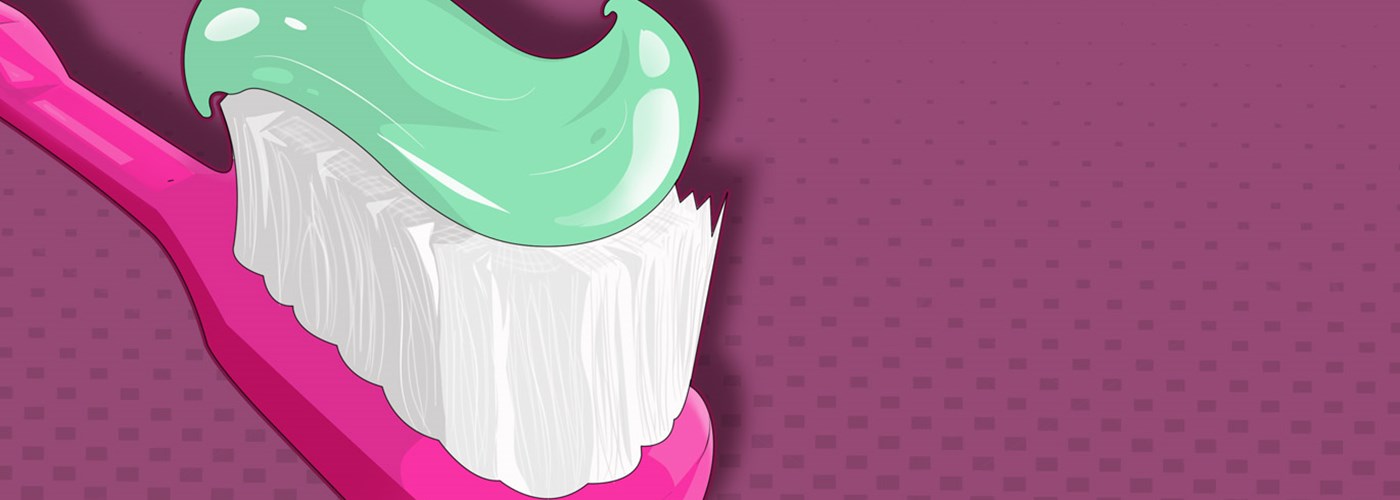5 steps for better dental health
Everyone aims to have sparkling teeth, but many of us fail to achieve the Hollywood smile. A busy lifestyle and a less than perfect diet can lead to stained teeth, cavities and bad breath. And poor dental health can even cause more serious health issues such as gum disease and tooth loss.
So to help you keep your pearly whites sparkling (and your mouth healthy) here are 5 tips you could work into your daily routine.
1. Proper brushing technique
We all know we need to brush our teeth twice a day, but are you doing it right?
Here’s a handy checklist to ensure everything is polished off nicely.
-
Place the head of your toothbrush against your teeth and tilt the bristles to a 45-degree angle against where your teeth meet your gums. Move the brush in small circular movements across all your teeth – on the front and back surfaces. If you’ve got an electric toothbrush, even better – it’ll do a lot of the hard work for you
-
Brush the biting surfaces of your teeth, making sure to get to all the hard-to reach molars at the back of your mouth
-
Finally, brush your tongue to help freshen your breath and remove any lingering bacteria
Teeth should be brushed with a fluoride toothpaste last thing before bed and at least one other time during the day, usually after breakfast for most people.
Brushing alone is not enough, however. Regular brushing does not get between the teeth, which can lead to excessive bacterial and plaque build-up that can damage the enamel of the teeth and cause gum disease if left untreated.
Daily flossing or interdental brushing (with a special interdental brush) can help remove this build-up of plaque and lessen the likelihood of needing fillings or other dental treatment.
2. Choose the right brush
Your dentist will be able to recommend a suitable toothbrush for you, but most adults should use a small- to medium-sized brush head with soft to medium, multi-tufted, round-ended nylon bristles.
The head needs to be small enough to reach all parts of your mouth, especially the back of your mouth, which can be difficult to reach if the head of the toothbrush is too large.
People with sensitive teeth can get specialist brushes with softer bristles, and people with crooked or irregular teeth can even get smaller brushes to help clean in the hard-to-reach places.
You should make sure you change your brush every two to three months to prevent damage to your gums and to ensure your teeth are being cleaned properly.
3. Make regular trips to the dentist
Regular dental check-ups can help you spot problems early and avoid the need for more invasive treatment. The dentist will also check for signs of more serious diseases that could otherwise go unnoticed.
Dental hygienists can give your teeth a proper clean, scrubbing and scraping off any stubborn plaque spots that regular brushing will struggle to remove.
4. Don’t overdo the mouthwash
Mouthwash can be a useful product for freshening breath and reducing the impact of tooth decay, but if you are using mouthwash all the time to mask bad breath, you could be covering up a more serious problem.
Bad breath can be a sign of gum disease, which can be serious if left untreated. So if you find you are constantly reaching for the mouthwash, make an appointment to see your dentist, just in case.
5. Cut out the sugar
We all know sugar is bad for our teeth, but even ‘diet’ or sugar-free fizzy drinks can have a detrimental effect on your smile. Sugarless fizzy drinks contain acids that break down the outer layer of your teeth, which can lead to staining and tooth decay.
Fruit juices and smoothies also have a similar effect and liquid fruit and vegetables can only make up one of your five-a-day, so don’t overdo it on the fruit juice.
Night time, when there is less saliva in your mouth, is the worst time for consuming sugary food and drinks so try to swap your sugar fix for a glass of water or a healthy snack.
You should never brush your teeth immediately after having a sugary drink or snack, as the brushing motion can drive the sugar into your teeth, making it more likely to cause damage.
About our healthcare
Benenden Health provides affordable private healthcare for everyone, giving you access to services such as our 24/7 GP Helpline and Mental Health Helpline straight away. Once you’ve been a member for six months you can request access to diagnostic consultations and tests.
You'll also have access to a wealth of health and wellbeing articles, videos and advice on a range of health issues.
Sources
http://www.nhs.uk/livewell/dentalhealth/Pages/Dentalhome.aspx



